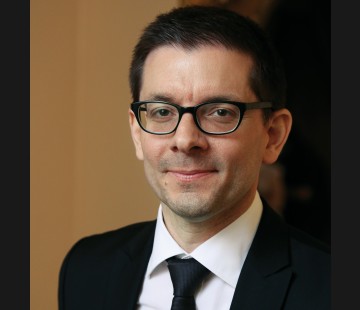
You are one of the speakers at the Power of Content Marketing conference. This is your first visit to Poland. Was there anything that surprised you?
Clemens Koob: I had two very positive surprises. First was free public Wi-Fi for mobile connections – at least in the Old Town. It is a great and very innovative idea. Second, Polish people – very friendly, kind and helpful.
Recent research by the Content Marketing Institute revealed that most highly effective marketers have a documented content marketing strategy. Is there no chance to be successful without a strategy?
C.K.: Research in German speaking countries showed similar results to those by the Content Marketing Institute: companies with a well-thought content marketing strategy are more successful. But I believe that strategy does not necessarily have to be documented. The written version is mainly of use for new people in the company. At the end of the day, the most important thing is that managers responsible for marketing have the strategy in their heads – that they think strategically. The advantage of building a strategy is you don’t have to rely on luck, but can systematically improve your situation when you see it is bad. You have a ready-to-use concept, and when it doesn’t work – you work it over. The strategy leads you, you know where to go, which way to take. It is a clear definition of your goal and the path that takes you there, which largely simplifies everyday operations.
In order to see something does not work we need to check the effectiveness of operations. What can a company with a really small budget do to monitor its media feedback?
C.K.: It depends on the media, whether it is an app or a website. For a custom magazine, that most companies have, there are a few efficiency measurement mechanisms at a very low cost. The least costly option is to use the possibilities of salespeople who have many opportunities to make contact with the client. You can hand them the magazine and let make a survey according to a previously developed form. Don’t forget with B2B tools the cheapest solution is… a simple talk. Top managers can meet key customers, business partners and receive their opinion on the magazine. When our budget is slightly bigger, try to organize focus groups or discussions with the target group. In Germany to organize two or three focus groups is the cost of around 6,000 euros.
Sometimes marketers use research to justify their oeprations and are thoughtlessly following the rates. On the other hand, there are those who want to implement their own novel idea, even when it has little to do with the research results. To what extent should researching determine what we do?
C.K: I think it’s best to combine the two attitudes. On the one hand, when we spend money on research, we should take its results seriously and really think them over. On the other hand, we need to be critical about the results. Research is more like a ladder that you can use to reach something, and not a ready-made formula for a success. It’s not about simply following the results but about having your vision, your strategy and trying to reflect the meaning of those results for the path you’ve chosen. We must be careful about what the target tells us, because sometimes they can’t tell us what they really want to say. So the truth lies in the middle: take the results seriously, but don’t follow blindly what people say. It is a matter of finding balance between your own ideas and intentions, and the feedback from research participants.
For how long should marketers monitor their media to get a reliable result? When can they decide whether they are efficient or not?
C.K.: Tough question. Many communications actions, such as improving the company’s reputation or image, or increasing customer loyalty, take time in order to really get the effect. You should run an initial measurement that can be repeated in a year, for instance. With a mobile medium, like an application, you can get some statistical data quickly, but when you want to measure changes and results, you need to be patient.
What do you think the future will be of content marketing effectiveness researching? Maybe we’re about to see totally new tools?
C.K.: Yes, the most important change will be in the measurement tools: they will get mobile and more social. Researching will move to iPads and iPhones – participants will provide answers via their mobile devices. Another trend that is becoming gradually more important is consumer neuroscience. We’re going to see measurement innovations in neuromarketing. Brain studies will give us many new methods, e.g. in measuring emotions during reading or looking at something.
But most of all, I strongly believe the very idea of efficiency measurement will be more and more popular in the future. It may take a few years, but measuring efficiency will eventually become a normal practice, just like it is now in other fields, e.g. TV advertising. The more often you make the measurement the cheaper it gets. For instance: conducting a research among readers this year, and then next year and in two years, using similar methods, you will pay 1,5 times as much as for one measurement, and not three times as much.
 Clemens Koob
Clemens Koob
Co-founder and managing director at Zehnvier – Swiss research and strategy consulting agency specialized. For over six years responsible for custom media and content marketing analysis of German Forum Corporate Publishing. Professor at Munich University. Author of more than 50 publications and books.
Kategorie: power of contentic, B2C, B2B